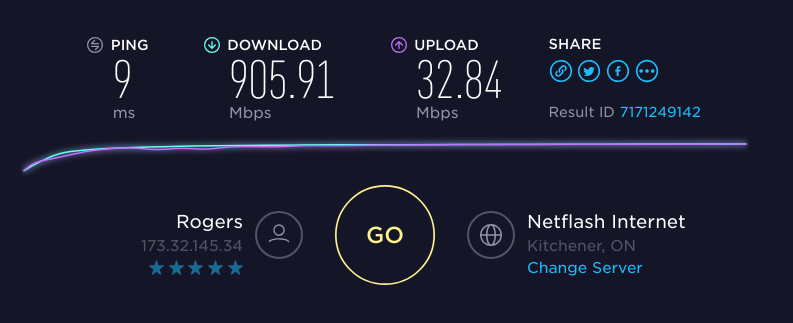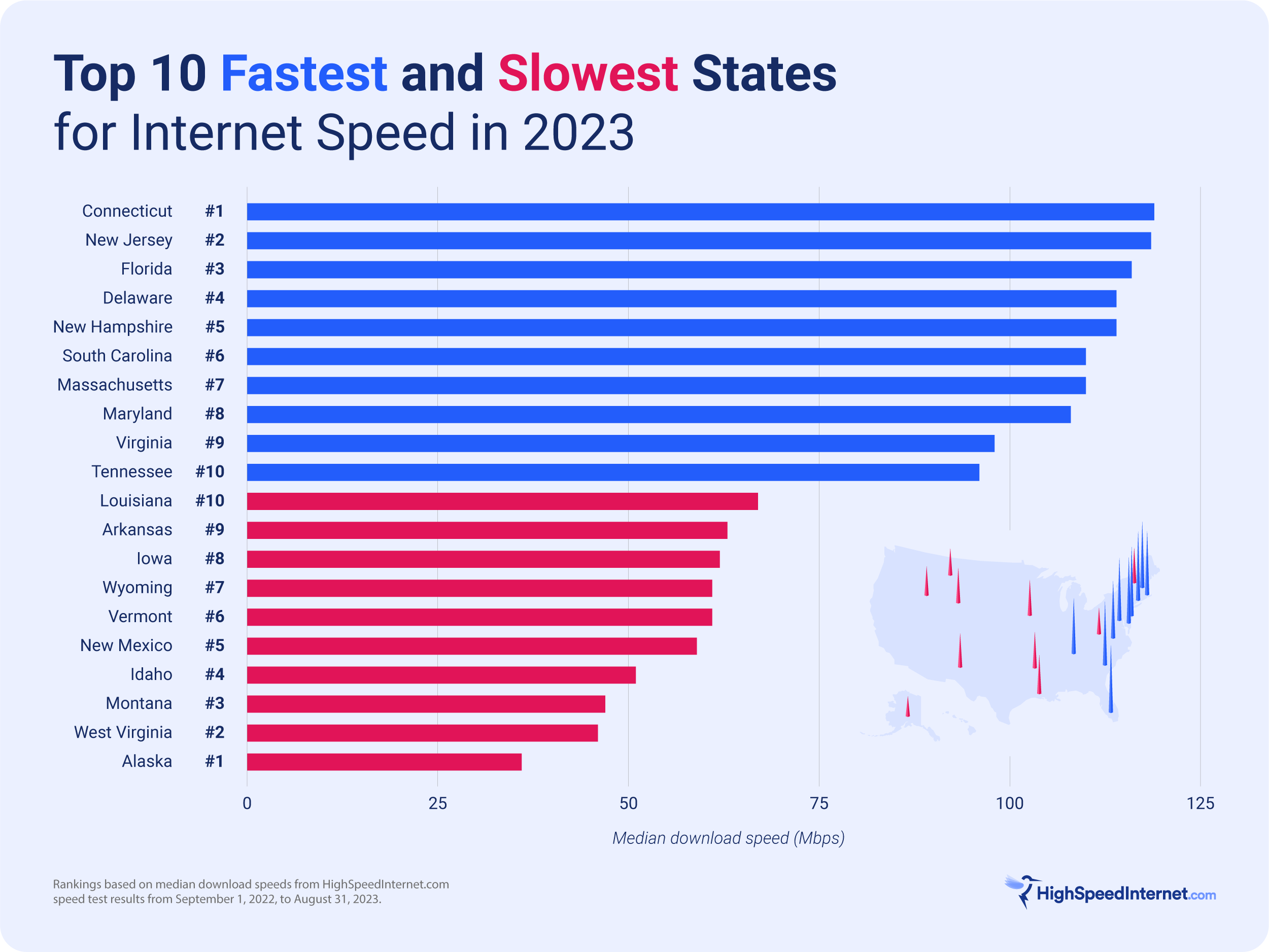The Impact of Megabits Per Second on Streaming Quality and Performance
The Impact of Megabits Per Second on Streaming Quality and Performance
Blog Article
How Megabits Per Second Effect Your Online Activities
The idea of megabits per second (Mbps) plays a critical duty fit our on the internet experiences. As digital tasks multiply, recognizing the effects of Mbps on streaming, pc gaming, and video clip conferencing ends up being progressively vital. Greater Mbps can boost efficiency and lower disruptions, while poor rates may foster aggravation and ineffectiveness. Assessing your family's certain requirements in relationship to these speeds is vital, especially as several tools try bandwidth. The subtleties of how Mbps influences numerous online tasks call for more exploration, particularly as our reliance on digital connectivity continues to progress.
Recognizing Megabits Per Second
When considering web rate, it's vital to comprehend the concept of megabits per second (Mbps), which acts as a conventional dimension for data transfer rates. This metric quantifies just how much information can be transmitted over an internet link in one second, providing a clear understanding of performance abilities - Megabits Per Second. For context, one megabit is equivalent to one million little bits, and Mbps is frequently used to express bandwidth for various on the internet activities
A greater Mbps suggests a faster internet connection, making it possible for customers to do jobs such as downloading and install documents, searching internet sites, and engaging in online pc gaming more successfully. As an example, typical browsing calls for around 1-5 Mbps, while streaming high-definition video clip might require 5-25 Mbps. Understanding these demands is important for determining the ideal internet speed required for specific activities.
Additionally, the number of gadgets linked to a network can influence total efficiency. Numerous customers streaming, pc gaming, or downloading simultaneously can stress readily available transmission capacity, resulting in slower rates - Megabits Per Second. Examining individual online routines and demands is important in choosing a web plan that lines up with one's needs, guaranteeing a seamless electronic experience
Streaming and Buffering Issues
Streaming high-def web content has actually ended up being a staple of modern-day on the internet enjoyment, yet it is usually come with by irritating buffering problems. These interruptions can considerably diminish the checking out experience, bring about discontentment and prospective loss of audience involvement. Buffering occurs when the data sent from the streaming service is not received promptly enough to maintain a smooth playback, usually as a result of not enough web rate determined in megabits per second (Mbps)

Furthermore, real-time streaming can be affected by network congestion, which takes place when several gadgets share the same transmission capacity. Subsequently, enhancing link rate and ensuring ample Mbps is important for a seamless streaming experience. As streaming solutions proceed to evolve, recognizing the influence of Mbps on buffering issues remains critical for customers my blog looking for undisturbed entertainment.
Online Gaming Performance
The impact of internet speed on on-line activities extends beyond streaming, dramatically influencing on the internet video gaming efficiency. In affordable gaming, low latency and high data transfer are crucial for a seamless experience. A quick connection decreases lag, permitting players to respond quickly to in-game events, which can be the difference between triumph and defeat.
Bandwidth, gauged in megabits per second (Mbps), plays an important duty in sustaining numerous gadgets and gaming platforms at the same time. Insufficient bandwidth can result in dropped links or reduced video game high quality, negatively impacting gameplay. On-line multiplayer games call for significant information transfer, especially during peak gaming hours when many gamers are online.
Fast-paced first-person shooters demand higher speeds to keep responsiveness, while turn-based technique video games may function fairly well on reduced speeds. As online video gaming continues to progress, with boosting graphical integrity and more intricate multiplayer environments, the need for greater Mbps will only increase.
Video Clip Conferencing Top Quality
In today's electronic landscape, video clip conferencing top quality is greatly influenced by internet speed, particularly in regards to data transfer and latency. High-quality video calls need enough transmission capacity to transmit sound and video clip information effortlessly. Commonly, a minimum of 1.5 Mbps upload and download rates is recommended for common interpretation video clip, while high-definition video conferencing typically requires a minimum of 3 Mbps.
Latency, or the delay in between sending out and receiving data, additionally plays an essential role in the customer experience. Higher dig this latency can lead to resemble, lag, and disjointed interactions, which can hinder partnership and interaction throughout conferences.
Additionally, multiple individuals in a video clip meeting can stress available transmission capacity, demanding even greater speeds. Network congestion, frequently brought on by synchronised tasks like streaming or downloading, can better deteriorate video quality. Therefore, for companies depending on video conferencing for remote cooperation, understanding the relationship between megabits per second and general interaction top quality is necessary for maintaining efficiency and improving online interactions.
Choosing the Right Internet Plan
Choosing an appropriate net strategy is important for ensuring ideal efficiency in different on-line activities, especially in setups that demand high data transfer, such as video conferencing and online gaming. Megabits Per Second. When thinking about a web plan, it is important to assess both the speed and information allowance to match your particular usage needs
For houses with multiple individuals taking part in synchronised activities, a plan offering greater megabits per second (Mbps) is recommended. Generally, a minimum of 25 Mbps appropriates for typical streaming and surfing, while plans surpassing 100 Mbps are more suitable for even more intensive tasks. Furthermore, take into consideration the nature of your online activities; video conferencing needs at the very least 1.5 Mbps upload rate, while online pc gaming may require a reduced latency however consistent link.
Unlimited data plans can prevent throttling and disturbances, specifically if heavy use is anticipated. By thoughtfully choosing a net plan tailored to your demands, you can boost your online experience, guaranteeing smooth, undisturbed accessibility to your favored tasks.
Verdict
To conclude, the relevance of megabits per second (Mbps) fit on-line tasks can not be overstated. Higher Mbps helps with seamless streaming, decreases buffering, enhances gaming experiences, and guarantees premium video clip conferencing. Alternatively, inadequate data transfer can result in aggravating disruptions and decreased performance throughout different tasks. An extensive understanding of individual or household Mbps needs is crucial for choosing a suitable internet strategy that effectively supports varied online tasks and individual needs.

Normally, a minimum of 25 Mbps is appropriate for conventional streaming and browsing, while plans going beyond 100 Mbps are better for more intensive jobs. In addition, think about the nature of your online activities; video clip conferencing calls for at least 1.5 Mbps upload speed, while on the internet gaming might require a lower latency yet constant connection.
Report this page